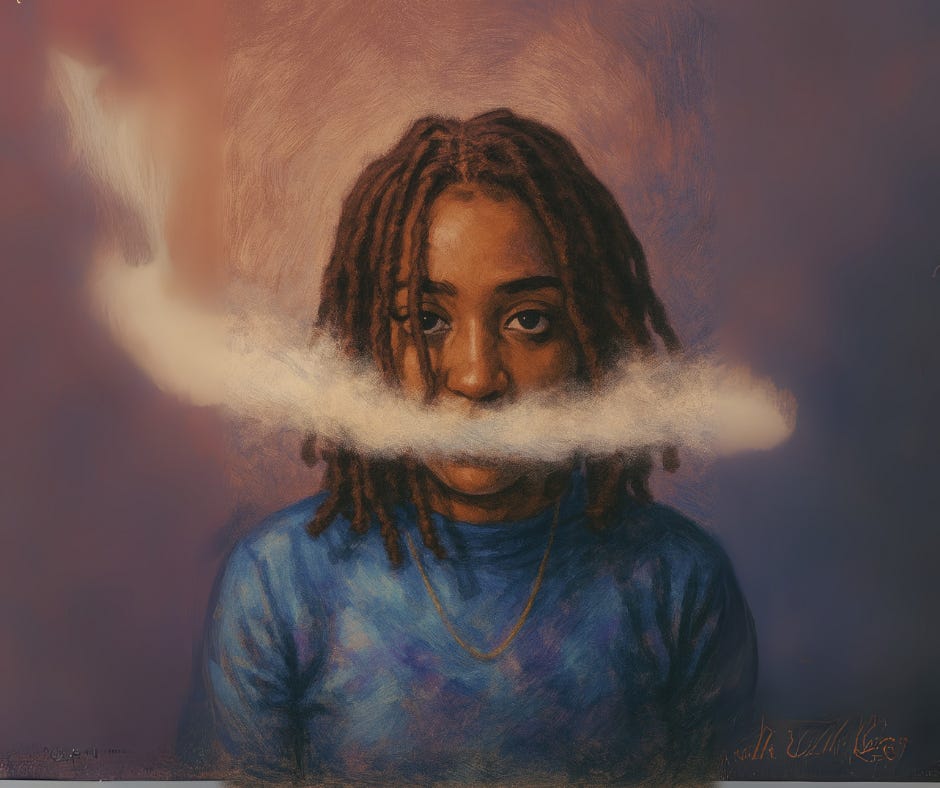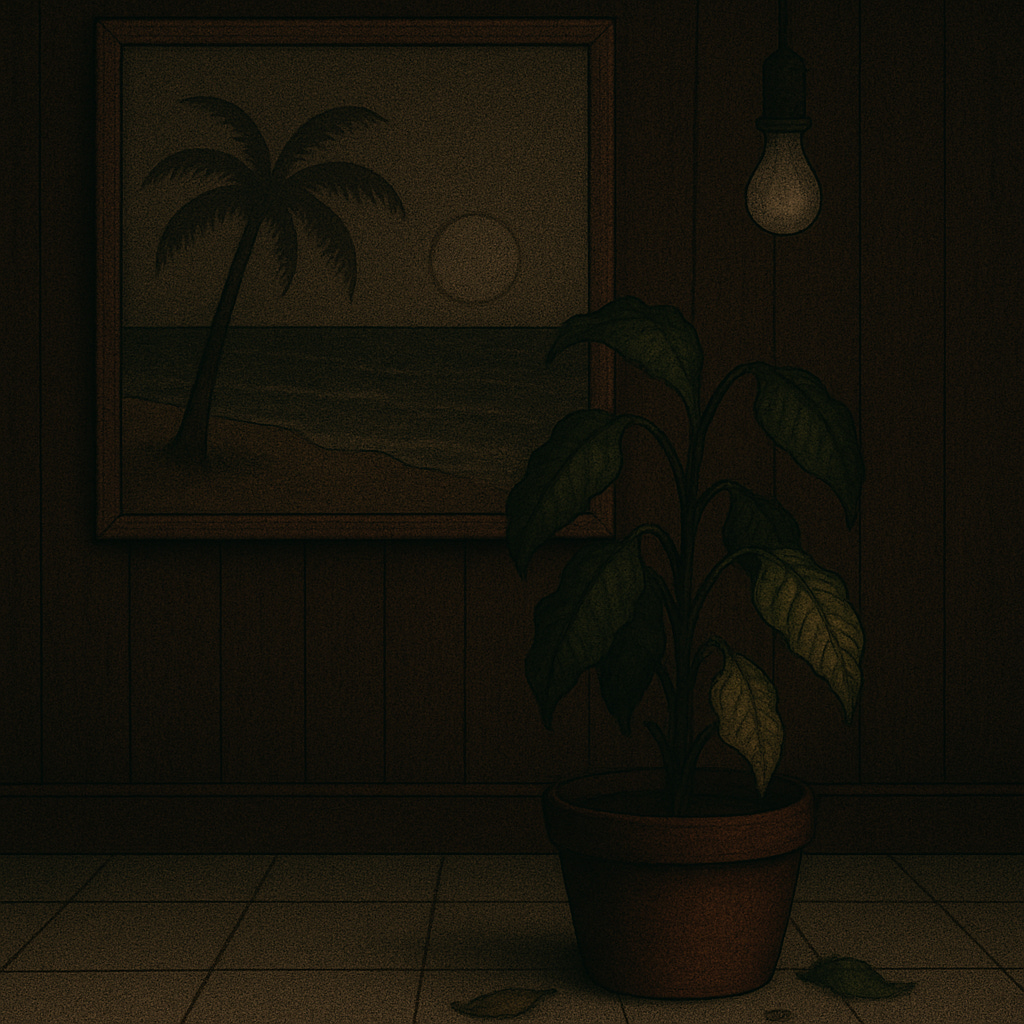Sometimes You're Not Wrong, You're Just Early
The music industry is not real and neither am I.
Sometimes you're not wrong, you're just early.
It's an uncomfortable place to be and one that nearly always involves self-denial. Gaslighting of your own doing is a quiet state of confusion, dipping its toe into shame. It's a place in which life can remain alive, but only enough to preserve life, not enough to thrive.
I pass it every day in the innermost corner of my mom's basement. A space now holding a growing number of boxes and belongings for my second and final flying fleeing of the coop. A beach-themed space storing an assortment of my mom's out-of-season clothes and various items from the 90s, including Men Are from Mars, Women Are from Venus. There's an aloe-looking plant that has been there for weeks at this point. It's pretty dark down here, especially at night. I know it from the times I slept down here, embracing a floor of separation from my mom while grieving on a cheap futon. It was dark, too dark, even for me. I had to buy a nightlight.
It was there. Yellowing crispy edges on some parts, but still very much alive - maybe living on the flood of daytime light from the occasional opening of the outside door. Survival mode, I guess. I wondered where it found the will.
I moved it into the hallway of the basement closest to the outside-facing door, next to another half-dead plant called "Grappy".
If I know one thing, it's that you really shouldn't fly too close to the sun. I did not want to shock it to death after such a resilient journey to freedom. Change is strange; letting go of hustle is weird. Being in the light after the dark can be scary. Not having that fear known or validated by others is more unnerving.
I'm finally reading The Body Keeps the Score. I have been reading it for many weeks. It has met a few men I have gone on dates with, while I rifle through my purse for lip gloss or my portable fan. It has sat face down on bistro tables. I, of course, no longer know the men, but the book remains.
I pause on a bolded section titled "Depersonalization". "Lol," I say to my empty room. I have been trying to give up saying "l-o-l" for about a decade now.
College is when I first began living in a bit of a haze. I was tired all the time, but I was depressed and knew that. So I had often just accepted it. At some point, I had gone to the doctor, almost willing a diagnosis of "chronic fatigue syndrome", but I was given a bill of clean physical health. "It's depression," said a short, older Chinese woman in glasses and a white coat before saying goodbye and leaving the exam room.
There's a familiarity, perhaps a subtle genetic understanding of East Asian women passed down unknowingly from my rolling stone Chinese grandfather. I never knew him, and don't think I would if I did. I enjoy how matter-of-fact they can be. The demand for excellence both of themselves and others makes a quarter of me cling for their elusive approval.
I didn't fight the fatigue. The more I resisted, the more I yawned and implemented what I would later call "desk time", allowing myself rest, forehead to desk, arm protective around my head for 30 seconds or less.
My first boyfriend worked at a Starbucks. You could find me in a lecture hall, likely with a macchiato or the other on my desk, powering through boring lectures on topics I cannot recall because of, well, the haze.
I adapted. Sometimes I had two or three timed throughout long, full days at Baruch, timed strategically for my most boring classes. I enjoyed abnormal psychology and law, as well as a course on Racism from the Black Studies department in undergrad. I recall presentations on Frank Ocean's Blonde at The New School and Bikini Kill in high school. The rest is virtually a blur. Feeling cool is an antidote to the fog.
I was "just tired"—no big deal. Though I felt exhausted, it didn't seem to show. It has accompanied me for long stretches of time in my twenties, and we got along all right, like when my great-aunt would come from Jamaica and stay at my Grandma's for several weeks, living in ordinary domestic bliss.
It has become increasingly difficult in recent years. This struggle is my biggest daily challenge, often intensifying when I most want to be present. It feeds off isolation and emboldens a perspective of being wholly unfamiliar. People and then...me. Groups of friends laughing amongst Starbucks Refreshers I found bewildering. I did not feel real and there seemed to be some ticket I just did not grab upon check-in.
I have a hard time with "trauma". It's hard for me to give that to myself. I have met perfect strangers who share their experiences with me. In a few weeks, I will talk to formerly incarcerated Black Mothers who I am most certain have faced traumas I would not put in quotes. It's hard to reconcile, and yet much of what I read in The Body Keeps the Score is already familiar and known. Maybe that's why this book has taken up residency in my purse for many weeks now.
"Physical self-awareness is the first step in releasing the tyranny of the past" is what I last underlined. I thought of my time in that final apartment, frequenting a yoga studio near me in Highland Park. I tried out what I was used to, walking my dog and sounding out "H-A, H-AHHHH" with others but I also tried different offerings. I journaled, I yelled, I took up space with my body among others. As I lay there, I felt lighter. It moved. I had seen this to be true in me.
I have woken up many mornings very unfamiliar with the life I'm leading and the world I am living in. My heart races as I am no longer what I always had been before - A good working cog in a big machine, smiling, willing, able. Lucky.
I never bothered to accrue other desires or interests. That's part of the deal. There is no time left over, and there's always another due to pay. There are carrots and sticks. Sides, genres. People who make deals over iMessage and SMS. People who make deals over emails, Zooms, and working meetings at SohoHouse or NeuHouse.
The carrots are abundant to the point that even the idea of proximity can be intoxicating. I shrink with too much attention but even I enjoy the sweet bliss of pressing the RFID chip of my press or artist wristband onto the reader. I take out my ID and wait for the crossing out in pen after I say my name, after "guest list." There's usually a sizable black man who slightly raises his eyebrow, smiles, or outright waves me into the lounge, the green room, or backstage with flair.
Blissfully refrigerated trailers in deserts with "artists", "agents", "managers", and sheep donning wolves. This is where I belong, it's what I get for my dues, my fetching of Subway sandwiches and Starbucks orders under Rockefeller Center at 18. Unpaid, but to be offered a MetroCard two years in.
It's what I get for never having enough experience to do what I made clear even at 17 - a desire to work with artists as closely as possible. Being a manager and having that door remain closed until the age of 30.
The carrot was everything, especially in my youth. I would do anything, be anything to be part of the folks sidestage, wearing glasses, standing stiffly in show blacks while typing fervently on their iPhones.
There is no carrot. Now more than ever. I see a shanty town, skeletal with tumbleweeds, wallpapered with Sabrina Carpenter think pieces, peppered in by TikTok-driven algorithms that I feel frankly scare the shit out of the people wearing black jeans and overpriced streetwear.
I did not shed tears when the other half of the bed emptied or when I bagged up the abandoned belongings of my ex. I became more foreign, more unreal, the more the carrots rotted and the tumbleweeds rolled in. We are both not real, both hazy, and adapting to the ever-changing situation presented.




